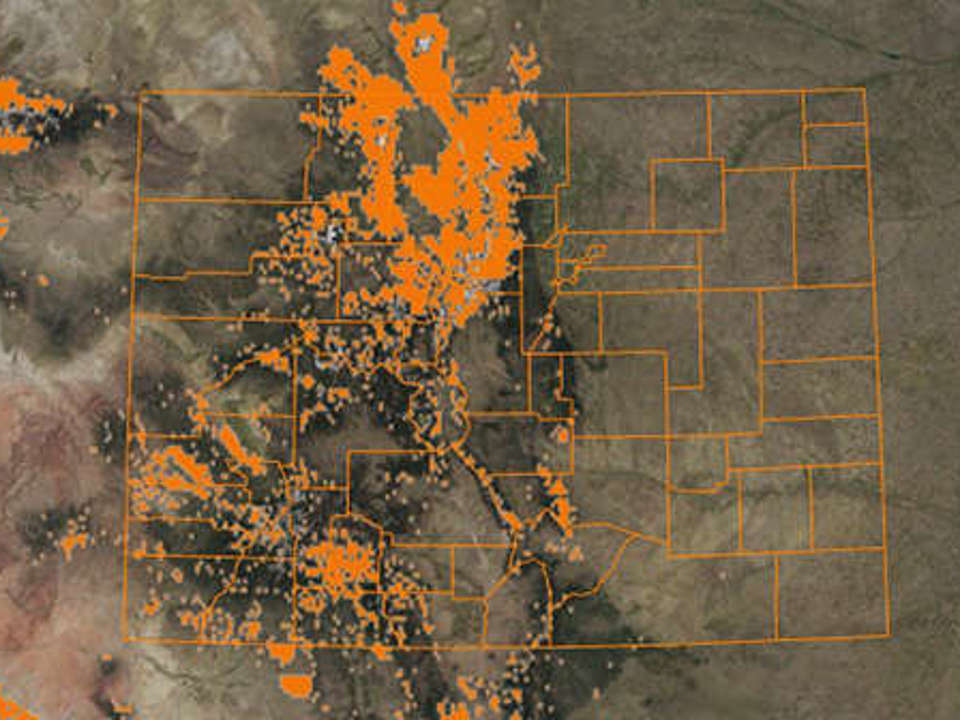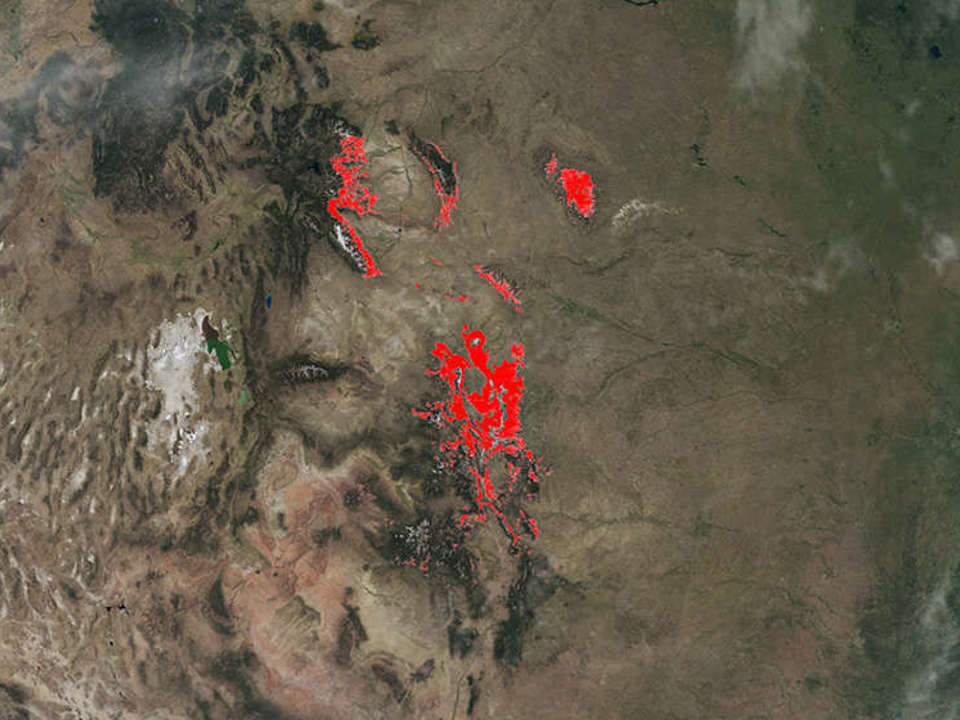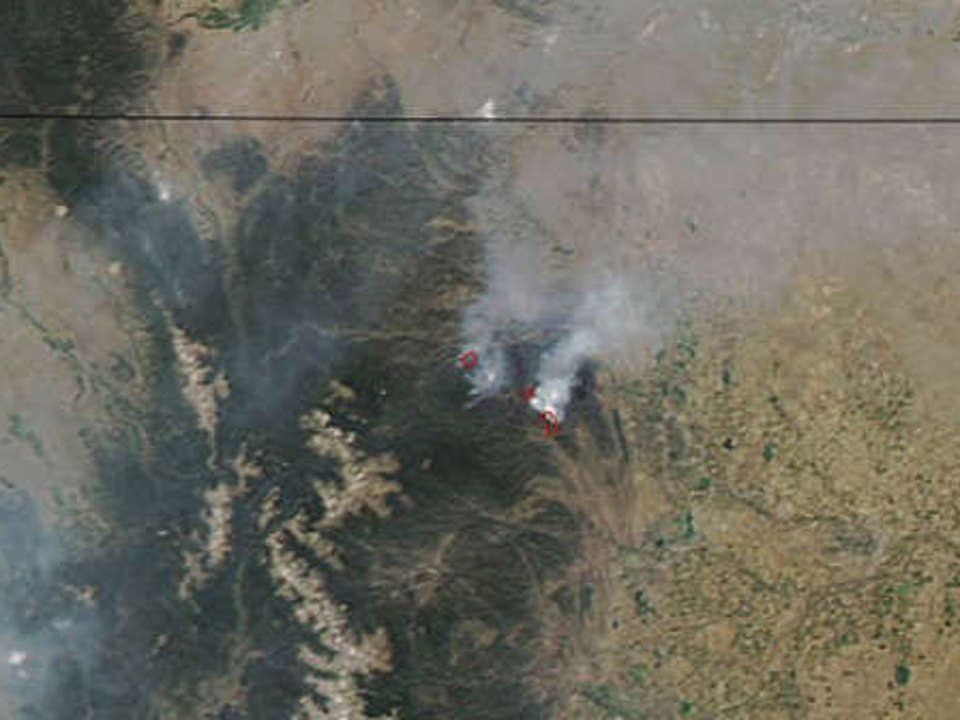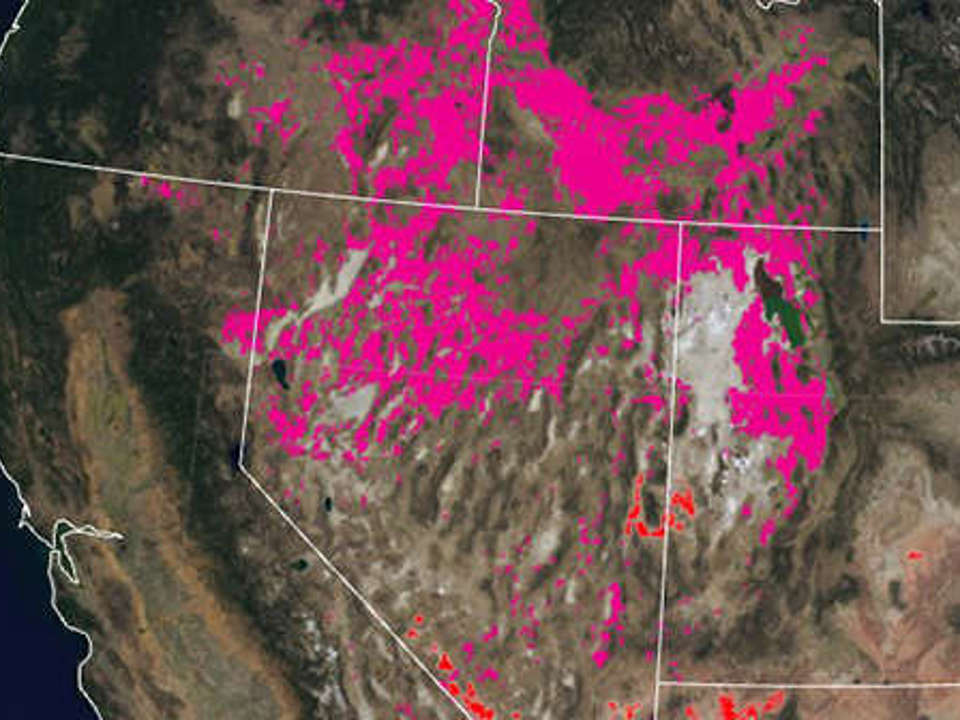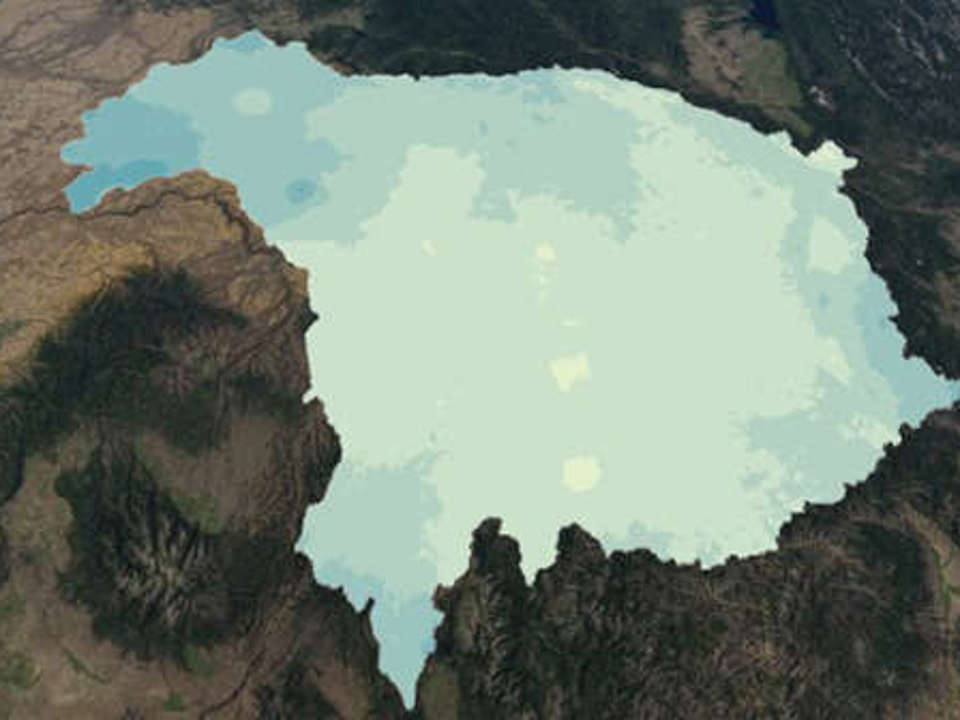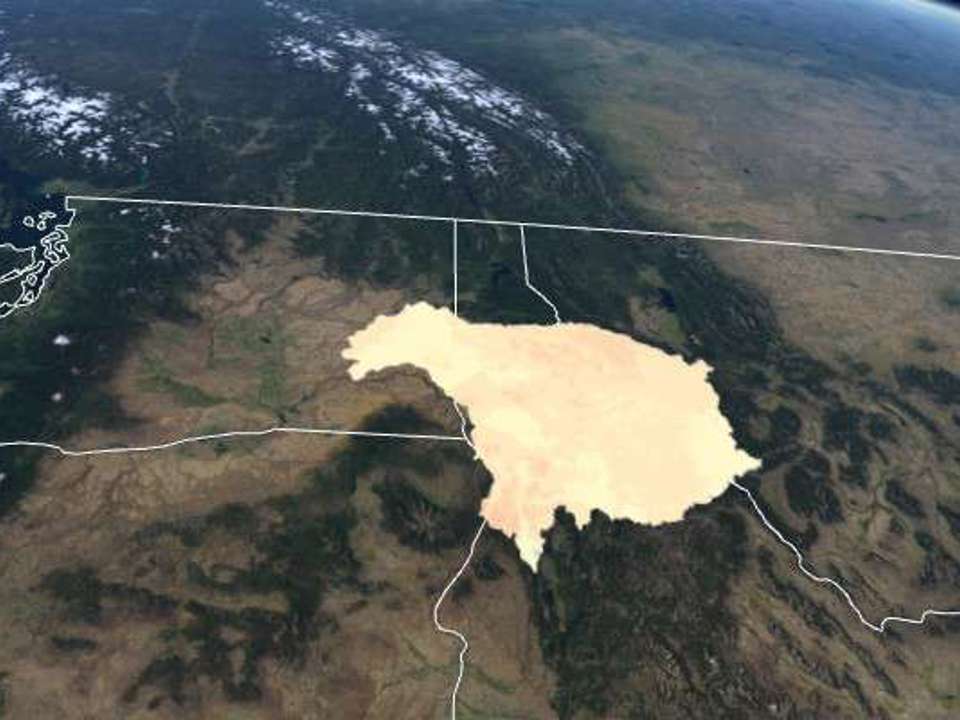The Worldviews Network is a NOAA-funded (NA10SEC0080011) nationwide collaboration of scientists, artists, and educators developing best practices for using immersive virtual environments for ecological literacy education incorporating live presentations, interactive scientific visualizations, and community sustainability dialogues. The Worldviews Network core team consisted of representatives from the Denver Museum of Nature & Science, California Academy of Sciences, NOVA/WGBH in Boston, The Elumenati, and the NOAA Climate Program Office.
Introduction
The genesis behind the Worldviews Network is partially the result of several different key phenomena: We are living in the Anthropocene, a new geological era dominated by human-induced processes. Human-driven global change is occurring faster than ever before.
At the same time, technologies for obtaining and visualizing bio- and geospatial data are also advancing rapidly. New satellite platforms are giving us maps of global phenomena at multiple wavelengths and beaming it back to us in near real-time. New visualization techniques and software are allowing these data to be displayed and interpreted.
Information-deficit models for educating the public about global change (including climate change) have not been successful. These assume that people are merely information-deficient about global and environmental change issues; once they are informed, then we can expect them to act on this information. However, multiple studies have shown that this does not necessarily occur.
The Worldviews Network uses a different approach by combining interactive real-time immersive visualizations that are possible within modern digital planetariums and a See-Know-Do approach to create education that integrates visual, systems, and design thinking. This allows audiences to visualize, comprehend, and address complex issues from a whole systems perspective:
- Seeing: View visualizations about cosmic, solar system, and global Earth systems science that tie large-scale processes to regional environmental issues and that show the complexity of global change.
- Knowing: Comprehend the scientific understanding of complex Earth systems, and understand how they operate and influence each other in culturally relevant ways.
- Doing: Address complex issues from a whole systems perspective by engaging ecological literacy organizations and using design tools to implement regional solutions to global change issues.
Programs
Worldviews Network programs explore interconnections between the resilience of social-ecological systems across cosmic, global, and bioregional scales. They were originally produced with partners across the United States and presented as live immersive presentations of scientific visualizations followed by facilitated community conversations. The following are some of the programs developed and presented at the Denver Museum of Nature & Science.
A Global Water Story
Water Resources, Forests, Land Use and Land Cover Change, Ecosystems, and Biodiversity
Water is crucial for life on Earth, and its distribution across the surface determines where people can live. The availability of water is an active concern of many citizens in the western United States, who have seen firsthand the impacts of drought in recent years. Mountain snowpack, which supplies much of the water in Colorado and states reliant on Colorado River water, is expected to decrease as the climate warms. In the past, we have built large infrastructure projects to move water to supply our cities and farms. Today we need to look to innovative technologies to help address the water challenges of the present and future.
This premiere of the Worldviews Network was designed to plunge audiences into a national conversation about local and global water issues using the immersive technology of Denver’s Gates Planetarium. Typically the planetarium is used to study space, but its capabilities were used to catalyze a discussion about interconnected Earth systems and environmental science.
This event originally took place at the Denver Museum of Nature & Science’s Gates Planetarium on May 24, 2011. It was simulcast live to The Journey Museum in Rapid City, South Dakota; RENCI/NEMAC in Asheville, North Carolina; California Academy of Sciences in San Francisco, California; and Como Elementary School in St. Paul, Minnesota, as a nationwide conversation about water with scientists and other experts. In the Gates Planetarium, geologist Bob Raynolds, PhD, and Ka Chun Yu explained the planetary processes that affect water supplies around the world and in the American West.
Forests, Beetles, and the Cycles of Life
Water Resources, Forests, Land Use and Land Cover Change, Ecosystems, and Biodiversity
Vast stands of coniferous forest are an essential part of the ecology, economy, and character of western North America. Recent dramatic changes, such as forest mortality from insect outbreaks and increased fire activity, are occurring across huge areas of western forests. “Forests, Beetles, and the Cycles of Life” explores the past, present, and future of our forests by traveling through space and time to understand the connections between local forest ecosystems, global forest biomes, and our cosmic neighborhood. It examines how pine beetles have changed Colorado’s landscapes, how these infestations arose, and their impacts on forests of western North America.
This event originally took place at the Denver Museum of Nature & Science’s Gates Planetarium (Denver, Colorado) on June 4, 2013.
National Parks in a Changing World
Water Resources, Forests, Land Use, and Land Cover Change
Global change is occurring within and across all landscapes, including the Intermountain West. This region includes some of our nation’s most iconic, culturally distinct, and ecologically intact landscapes. The widespread, complex, and accelerating nature of 21st-century environmental change poses a challenge to the conservation and management of national parks and their invaluable natural and cultural resources. While each individual park remains a distinct unit, every park is embedded in, and influenced by, a larger regional landscape. Park stewardship requires a landscape perspective, strong collaborative partnerships, and an engaged citizenry to manage park resources across scales of space and time.
To foster these perspectives and collaborations, the Worldviews Network extended an invitation to National Park Service (NPS) staff, colleagues, and partners to participate in a unique private event. “National Parks in a Changing World” was a live, interactive “domecast” between two full-dome planetariums, the Gates Planetarium at the Denver Museum of Nature & Science and the Otterbox Digital Dome Theater at the Fort Collins Museum of Discovery. We used the immersive setting of these two dome theaters to explore systems from cosmic to local that connect land, ocean, atmosphere, and biosphere. Exposed to a wide range of datasets from NPS, NASA, NOAA, USGS, USFS, NatureServe, citizen scientists, and others, the audience was taken on an imaginary journey through space and time, from our cosmic origins to our common future, from the neighborhood of our solar system to the heart of the intermountain regional parks. We explored processes of global change, such as land use change, invasive species, energy development, and climate change, to better understand how these processes influence park resources and inform 21st-century management and conservation approaches.
This event originally took place at the Denver Museum of Nature & Science’s Gates Planetarium (Denver, Colorado) and Fort Collins Museum of Discovery’s Otterbox Digital Dome Theater (Fort Collins, Colorado) on September 26, 2013.
References
Yu, K. C., C. Emmart, and R. Thompson. 2014. Planetariums for community dialogues on ecological resilience to global change: case studies, evaluation results, and dissemination products. Proceedings of the 22nd International Planetarium Society Conference, 23–27 June, 2014, Beijing, 106.
Yu, K. C., D. McConville, N. Gardiner, H. Hamilton, L. Irving, K. Koontz, and G. Mancari. 2014. Production pipeline for real-time planetarium presentations of global change topics. Proceedings of the 22nd International Planetarium Society Conference, 23–27 June, 2014, Beijing, 107–115.
Yu, K. C., R. Connolly, N. Gardiner, H. Hamilton, K. Koontz, D. McConville, J. Sickler, and R. Wyatt. 2013. The Worldviews Network: digital Earth for ecological and resilience education. Proceedings of the 8th International Symposium on Digital Earth 2013, 26–29 August 2013, Kuching, Sarawak, Malaysia.
Yu, K. C., R. Connolly, N. Gardiner, H. Hamilton, K. Koontz, D. McConville, J. Sickler, and R. Wyatt. 2013. The Worldviews Network: digital planetariums for engaging public audiences in global change issues. GSA paper no. 283–2, Geological Society of America Annual Meeting 2013, Denver, CO, 27–30 October 2013, 45(7):654.
Yu, K. C., J. Sickler, R. Wyatt, E. Gardiner, M. Linke, and J. Rock. 2013. Bringing the planetarium to Earth: community dialogues for ecological resilience. Association of Science-Technology Centers 2013 Annual Conference, 19–22 October 2013, Albuquerque, NM.
Wyatt, R. J., K. Koontz, K. C. Yu, N. Gardiner, R. Connolly, and D. McConville. 2013. The Worldviews Network: digital planetariums for engaging public audiences in global change issues. AGU abstract #ED21B-06, American Geophysical Union Fall Meeting 2013, 9–13 December 2013, San Francisco, CA.

